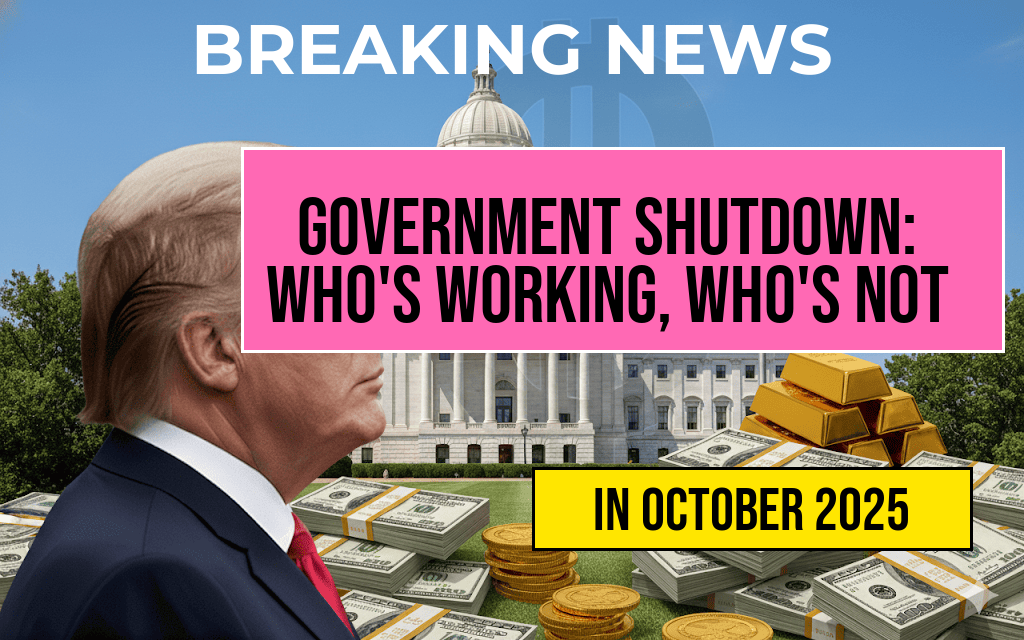As the government shutdown takes effect, millions of Americans are left wondering how it will impact essential services and federal employees. With funding halted for numerous agencies, the repercussions are being felt across various sectors, from Social Security to the Transportation Security Administration (TSA). The shutdown, resulting from a failure to reach an agreement on the federal budget, has led to widespread uncertainty regarding which services will continue and which will be suspended. This article provides a comprehensive agency-by-agency guide to the status of government operations, detailing who will remain on the job and who will not during this critical period.
Federal Agencies Affected by the Shutdown
Social Security Administration (SSA)
The Social Security Administration will continue to function during the shutdown. Payments for Social Security, Supplemental Security Income (SSI), and Social Security Disability Insurance (SSDI) will be processed as usual, ensuring that recipients receive their benefits without interruption. However, new applications may face delays due to reduced staffing levels.
Internal Revenue Service (IRS)
The IRS is also impacted by the shutdown. While taxpayers can still file their returns, refund processing will be significantly delayed. Limited staff will remain on duty to manage inquiries and essential functions, but taxpayers may experience longer wait times and fewer resources to assist them. For more information on IRS updates, visit the IRS Newsroom.
Department of Defense (DoD)
The Department of Defense will continue operations, but civilian employees may face furloughs. Active-duty military personnel will remain on duty, ensuring national security remains intact. However, many Pentagon support services will be limited, which may affect non-essential operations.
Transportation Security Administration (TSA)
The TSA will continue to operate, maintaining airport security and screening services. However, the agency may experience staffing shortages, which could lead to longer wait times at airport checkpoints. Travelers are advised to arrive early to accommodate potential delays.
Department of Veterans Affairs (VA)
The VA will continue to provide critical health care services to veterans. Benefits and claims processing will remain operational, but some non-essential services may be reduced. Veterans can expect continuity in their health care appointments and access to emergency services.
Federal Bureau of Investigation (FBI)
The FBI will maintain its core functions, including national security operations and criminal investigations. However, certain administrative tasks may be delayed due to staffing limitations, potentially affecting ongoing cases and investigations.
U.S. Postal Service (USPS)
The U.S. Postal Service operates independently of federal funding and will continue to deliver mail and packages without interruption. Postal workers will remain on the job, ensuring that services are maintained for all Americans.
Environmental Protection Agency (EPA)
The EPA will significantly reduce its workforce during the shutdown. While critical functions related to health and safety will continue, many programs will be suspended, including environmental monitoring and regulatory activities. Staff will be limited to only essential personnel.
Impact on Federal Employees
As federal agencies grapple with the shutdown, the impact on employees varies greatly. Essential workers will continue their duties, while non-essential staff face furloughs. This disruption affects not only government functions but also the economic stability of federal workers and their families.
Who is Furloughed?
- Many administrative and support staff at federal agencies
- Some civilian employees at the Department of Defense
- Personnel in non-essential roles at various agencies
Who Remains on Duty?
- Active-duty military personnel
- Essential personnel in agencies like the TSA and FBI
- Health care providers in the VA system
Long-Term Considerations
The ramifications of the government shutdown extend beyond immediate service disruptions. As agencies navigate reduced operations, the potential for long-term consequences increases. Delays in processing benefits, claims, and applications could lead to broader economic impacts, affecting individuals and businesses reliant on timely government services.
For ongoing updates about the shutdown and its effects, citizens are encouraged to check official government websites and news outlets. Reliable sources include the U.S. Congress and the White House, which provide real-time information on legislative efforts to resolve the budget impasse.
Frequently Asked Questions
What happens to Social Security services during the government shutdown?
During the government shutdown, Social Security services will continue to operate, as the agency has enough funding to maintain its operations. Benefits will still be processed and distributed without interruption.
Is the TSA affected by the government shutdown?
No, the TSA (Transportation Security Administration) continues to operate normally during the government shutdown. Airport security personnel will remain on duty to ensure the safety of travelers.
How does the government shutdown impact the IRS?
The IRS will significantly reduce its staff during the government shutdown, which may delay processing of tax returns and refunds. Essential functions will still be performed, but taxpayers may experience longer wait times for assistance.
Are defense operations affected by the government shutdown?
Defense operations will continue, as the Department of Defense is funded through a different mechanism. Military personnel will remain on duty and essential services will not be disrupted.
Will federal employees receive pay during the government shutdown?
Federal employees who are deemed non-essential may be furloughed and will not receive pay during the shutdown. However, essential employees will continue to work and are typically compensated once the government reopens.

Leave a Reply